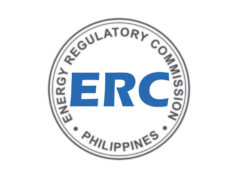METRO Manila water suppliers said they are providing relief to customers experiencing difficulties paying their bills during the enhanced community quarantine (ECQ) imposed on Luzon.
West zone water provider Maynilad Water Services Inc. said it is suspending water disconnections for overdue accounts.
In a radio interview Monday, Maynilad Business Area Spokesperson Zmel D. Grabillo said that the company has added 30 days to its payment deadlines for monthly bills.
The 30 days come on top of the 60-day grace period that the water concessionaire usually gives its customers.
The company recently announced the suspension of meter reading and billing activities and the application of average monthly billing instead of charging for the actual amount of water used.
Mr. Grabillo added that there is no pending increase of water rates in the coming months.
Meanwhile, Manila Water Co. Inc. Corporate Strategic Affairs Head Nestor Jeric T. Sevilla said that monthly billing during ECQ will be based on the customers’ average consumption in the past three months.
The east zone water concessionaire also recently suspended meter reading and billing activities to protect its employees from the coronavirus disease 2019 (COVID-19).
“Any overbilling or under billing in the monthly bills will be adjusted after the lifting of the enhanced community quarantine and when normal operations resume,” Mr. Sevilla said in a radio interview Monday.
Both water distributor urged the public to practice responsible use of water, amid increased hand-washing and other preventive measure practiced to contain COVID-19.
Meanwhile, the Metropolitan Waterworks and Sewerage System Regulatory Office (MWSS-RO) ensured the public that drinking water and wastewater within its concession areas are safe and disinfected with chlorine.
In a statement Monday, MWSS Chief Regulator Patrick Lester N. Ty said MWSS water is safe for consumption, after concerns were raised about possible COVID-19 contamination in the water supply.
Mr. Ty added that chlorine treatment inactivates the COVID-19 virus, according to a World Health Organization (WHO) technical brief on water, sanitation, hygiene, and waste management released on March 19. — Revin Mikhael D. Ochave



